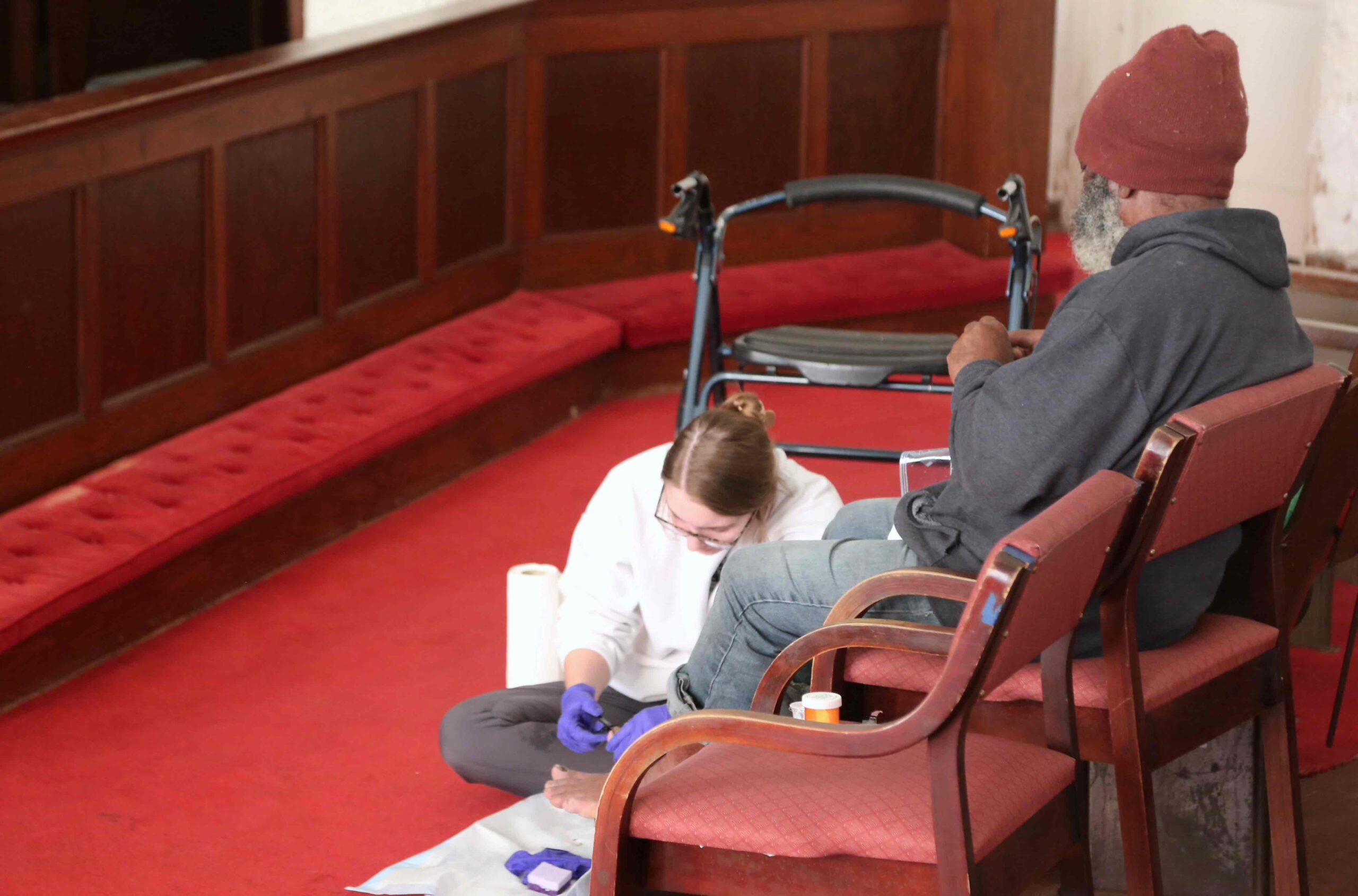
By Lindsay Peyton
Every Thursday, physical therapy student Kelcee Heflin heads to Galveston Central UMC. The 25-year old, in her final year at the University of Texas Medical Branch (UTMB), is finishing her rotations. Once a week that takes her to a whole different kind of medical facility – Grace Clinic, housed upstairs in the church.
Helfin serves as president of the Galveston Central Mobility Clinic, the division of Grace Clinic that provides assisted devices, footwear and wound care to patients. Before care is provided, individuals explain their medical history and current concerns.
Usually, that conversation takes place over a foot bath, Helfin explained. Students fill a basin with warm water.
“We have soap, pumice stones and antifungal cream,” Helfin said. “We cleanse their feet, and we look for wounds. We ask about shoes and foot hygiene. They are on their feet all day. And they don’t have the privilege to come home and take their shoes off – or to change their socks when it’s rainy.”
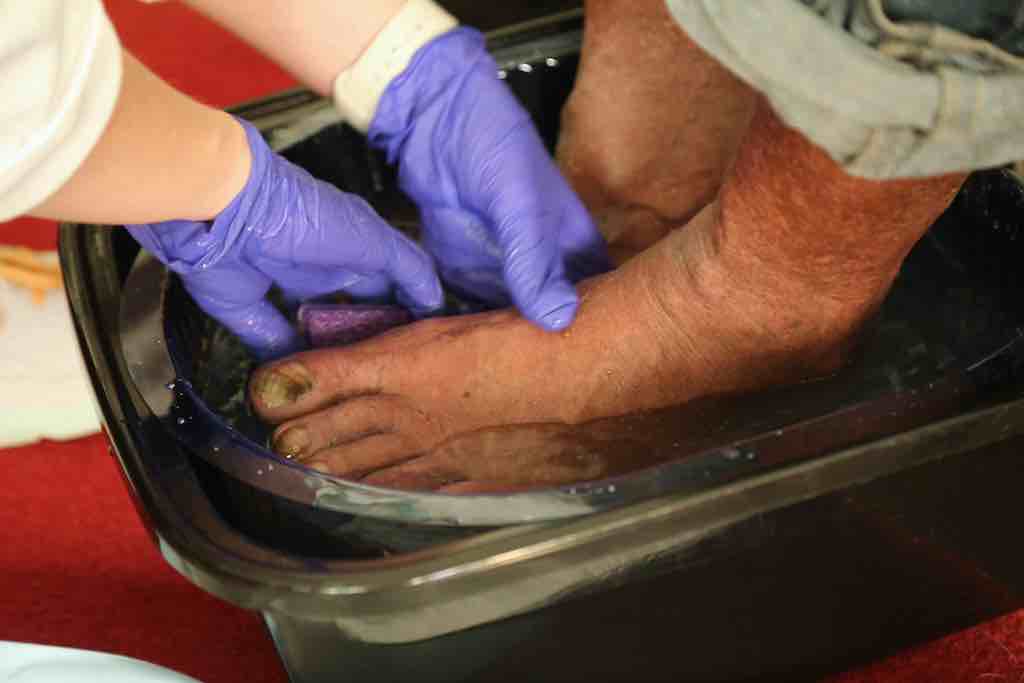
Heflin can tell a lot from wounds on the feet. They could be a sign of diabetes or an infection resulting from shoes rubbing the wrong way. She asks about sensation, numbness and swelling – and checks between the toes for dryness and cracking.
“It gives us a big indication of health,” Heflin said. “If they have problems walking, the foot could be a part of it.”
While washing their feet, Heflin says conversations flow with patients. “It’s a good way to learn about them,” she explained. “Cleansing someone’s feet is very vulnerable. It’s a gateway and opens up a door.”
Trust is built in the exchange. “People see, I’m the one cleaning their feet,” Heflin said. “I’m letting them know, ‘I’m here for you on every level.’”
Afterwards, she hands them fresh socks. If they need shoes, she has a supply standing by.
Last September, Heflin held a shoe drive and fit nearly a hundred community members with new shoes. She is planning another drive in April.
The Mobility Clinic started last February – and already 150 patients have been seen. “We’ve given out walkers, canes, shoes and socks,” Helfin said. “Some patients have been back every week since we started.”
She continued, “It makes a big difference when they can walk one more block than they used to, because that’s their major way of transportation.”
A lot of need on the island
Helfin was actually instrumental in bringing physical therapy to the Grace Clinic. About a year and a half ago, she started brainstorming a way to help the community in Galveston. “There’s a large homeless population on the island with a lot of need,” she said.
Traditional health care was not addressing all of the medical concerns, Helfin explained, whether because of cost or discomfort with clinical settings. “I felt like there was something we could do,” she said.
Heflin imagined a health fair, where individuals could be connected to medical and therapeutic resources. Instead, her professor suggested reaching out to the Grace Clinic, which had recently launched at Galveston Central.
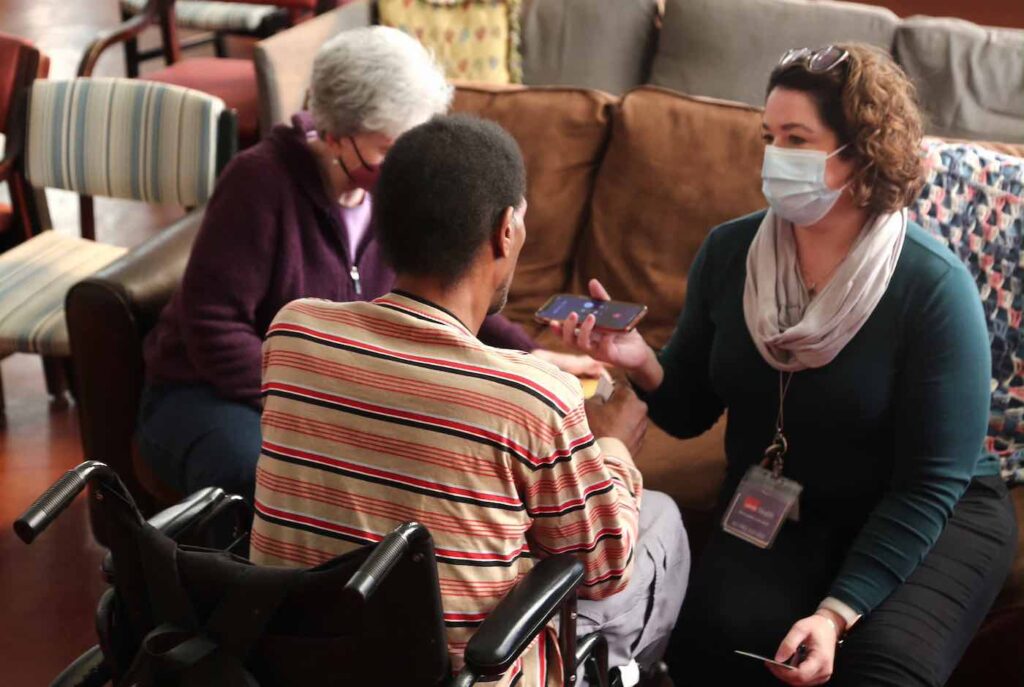
“They were already serving this patient population,” Heflin said. “We could plug in and help meet the need.”
First, she went to observe the clinic in action. “I just thought it was absolutely incredible,” she said. “It’s student-led, and our professors are there. It was a big eye-opener about what could happen when a community comes together.”
Because the clinic was housed in a church, it appealed to those who might be leery of heading to a medical center. “It’s a place where they felt comfortable already,” Heflin said.
Galveston Central is known as a church where all are welcome, regardless of socioeconomic status. The distinction between who is served and who is serving is blurred intentionally. In the kitchen, housed and unhoused individuals cook together. The church also offers a shower facility, laundry machines and a bike repair shop.
At the clinic upstairs, students dress in sweats and t-shirts, instead of scrubs and lab coats to preserve the feel of a comfortable space.
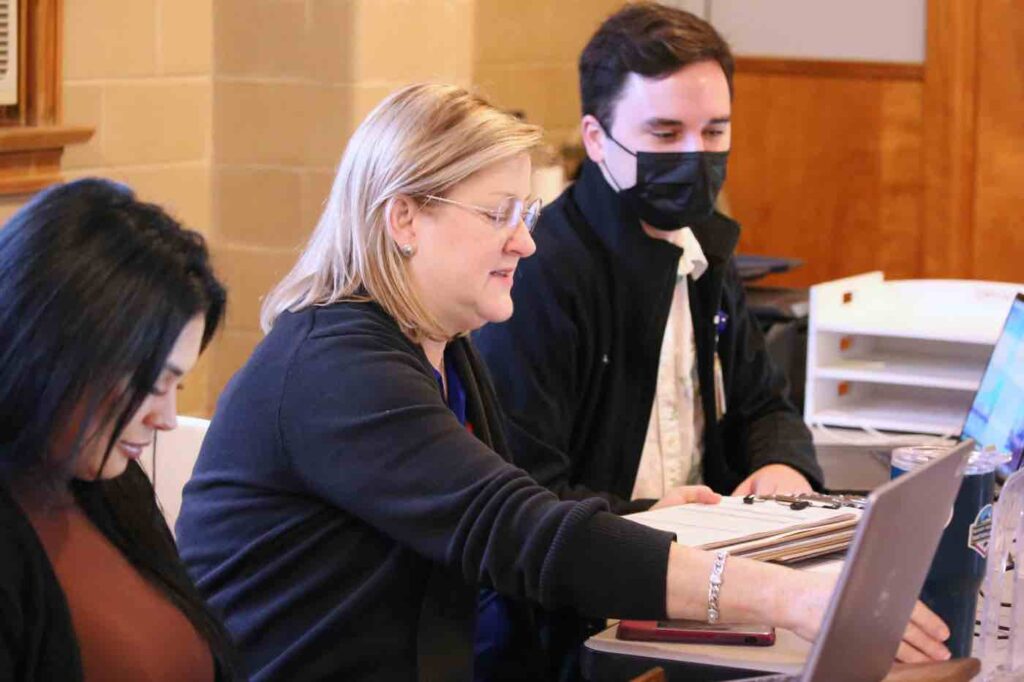
Julia Riley, one of the pastors explained that the clinic’s roots trace back to a COVID vaccine clinic in 2021. “It was super well attended,” she said.
Riley explained that individuals who were distrustful of medical institutions seemed more willing to come to church for the shot. Also, they could get guidance from their pastors, who had already received the vaccine.
Not long after, Michael Gienger, another pastor received an unexpected email from professor Miles Farr at UTMB. The note felt like confirmation of what Galveston Central members witnessed during the vaccine clinic, Riley said.
“He approached us saying, ‘Y’all already have these relationships with unsheltered folks and also uninsured and underinsured,’” she recalled.
Several brainstorming sessions ensued with Dr. Farr, Riley and Gienger. Different faculty members at UTMB got on board, including the School of Nursing.
The university established the office of Community Engagement and Interprofessional Education, which guided the effort and provided oversight. A committee for this project included faculty, church members and students.
In the summer of 2021, a pilot program was launched. Church members trained students and faculty on ways to treat the unhoused population with dignity and kindness.
“It’s always been part of our church culture that your spiritual life is part of your actual life,” Riley said. “This felt like a logical next step. We care about people’s spiritual health – and also about their actual access to medications and treatment that feels safe to them.”
A game changer
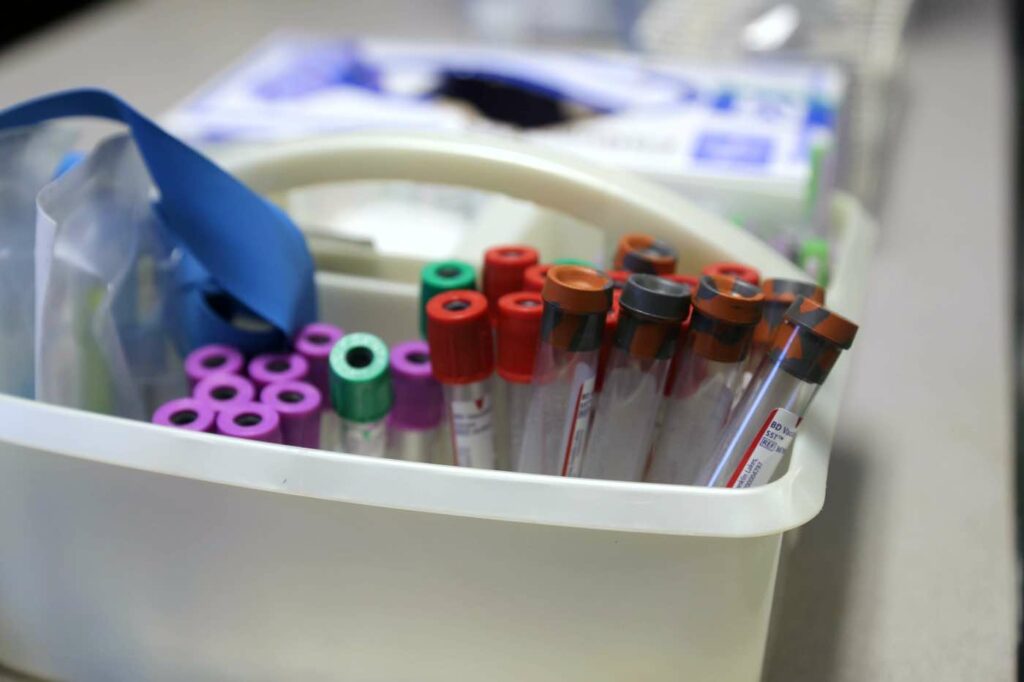
In Feb. 2022, the clinic officially opened – through a memorandum of understanding between the church, UTMB and St. Vincent’s clinic, a student-run facility that offers care to both underinsured and uninsured patients.
Providers offer primary care, visits from a dentist and clinical labs. Prescriptions were also filled for free. Psychological services, medical screenings and vaccines are also offered.
The university secured more resources and brought a community nurse Martha Díaz on board. She serves as community engagement nurse and liaison for UTMB’s Community Engagement and Interprofessional Education at its St. Vincent’s clinics.
Díaz was impressed after her first tour of Galveston Central. “They offered so much,” she said.
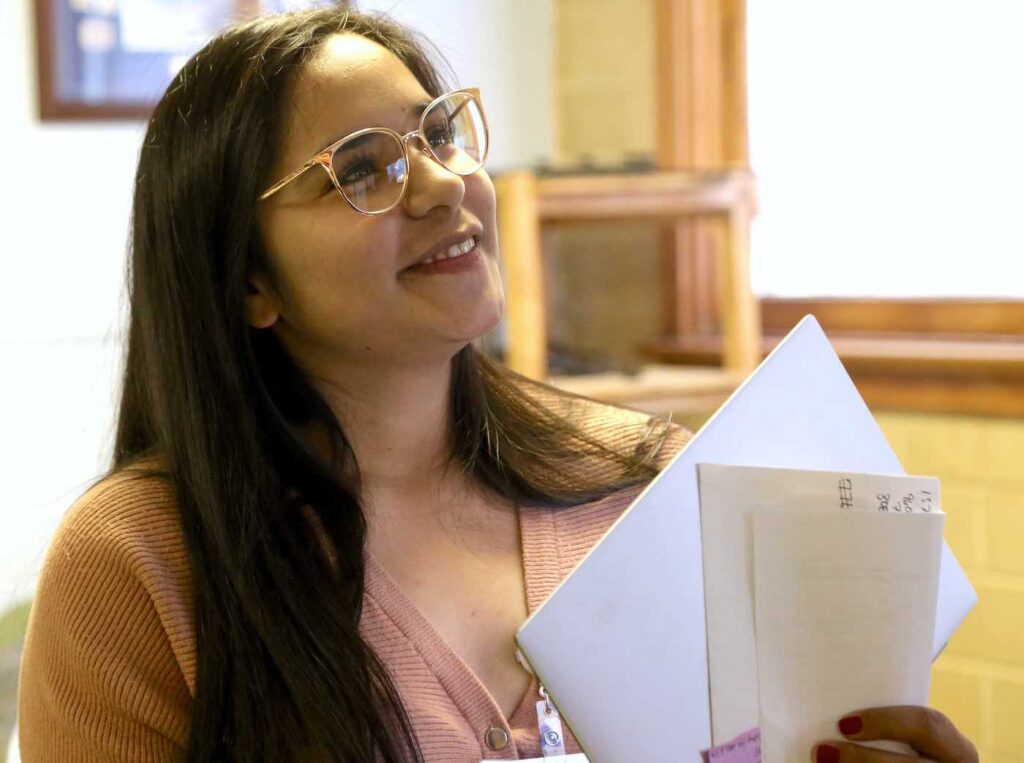
Díaz explained that adding a clinic to a church makes sense. “The healthcare system is very hard to navigate,” she said. “We need to meet people where they are – and address what they want.”
Individuals were already going to Galveston Central for meals, she added. “Why not give them their next meal and their medical care together?”
Díaz explained that foot washing, a brainchild of Dr. Farr, was part of the initial services at Grace Clinic.
“It’s something that everyone gets,” she said. “It’s a really awesome service. Our community members are on their feet 24/7. Their feet might be the last thing they think about – yet that’s what drives them and takes them everywhere they go.”
Foot washing is rapport building, Díaz explained. “We’re showing them that they are worthy of medical care,” she said.
She gave one recently to a patient who complained of a crack on his foot. When she offered the service, he was surprised. “Take your shoes off,” she said.
“He was like, ‘Wow. I will never forget this day for the rest of my life,’” Díaz recalled. “The feeling they get from this is invaluable.”
Medically, washing a patient’s feet also gives her crucial insight. While students help with the baths, she takes charge of toenail clipping. Patients are grateful for the service, and cutting nails can eliminate wounds and infection. “It’s a game changer for them,” Díaz said.
Breaking a barrier
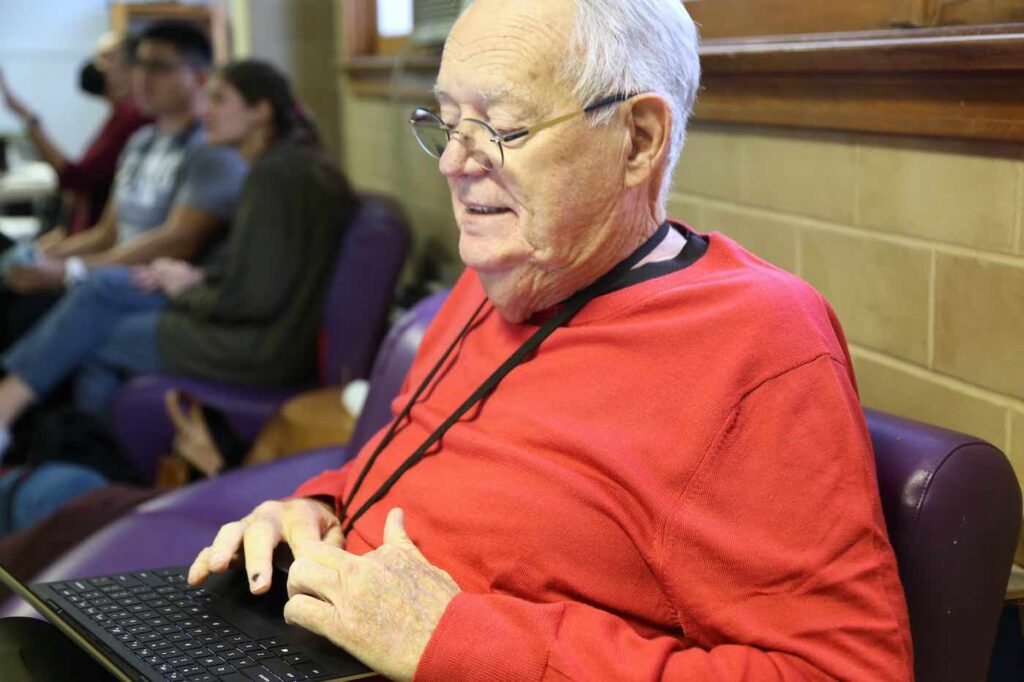
A year has passed since Grace Clinic opened – and already it has become a part of UTMB’s curriculum for nursing students, as well as those on occupational and physical therapy tracks.
Helfin, who graduates this year, explained that the facility provides students with opportunities to learn about care for the homeless population. Foot washing can open a conversation – one that changes a student’s perspective on who an unhoused person truly is.
At the same time, she hopes that the experience changes the patient’s notion of a healthcare provider.
“Hopefully it gives our patients a unique perspective – that we’re there to support them and be there for them,” she said. “It’s a way to break the barrier. We’re on the floor washing feet. We don’t put ourselves above them.”
Pastor Riley said that washing feet allows health care providers to connect in a deeper way with their patients.
She points to Scripture – in John 13:2–17 when Jesus washes the feet of His disciples and says, “If I then, your Lord and Teacher, have washed your feet, you also ought to wash one another’s feet. For I have given you an example, that you should do as I have done to you.”
“What a powerful statement,” Riley said. “No one is more important than anyone else. You are all worthy.”
It’s about dignity, the pastor added. “And it’s not just symbolic. It’s a way of saying, ‘You matter. Your health matters.’”
